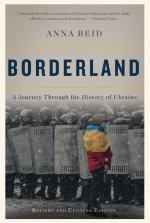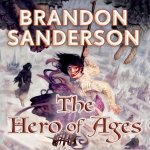The latest book I can't put down is Edward Dolnick's T
he Writing of the Gods: the Race to Decode the Rosetta Stone.
View attachment 11790
Dolnick was formerly chief science writer for the Boston Globe and has written as well for the NYT Magazine and The Atlantic. His book on the Rosetta Stone is presented as an historical thriller. The main thread is the decades-long competition between a Frenchman and a British citizen to understand the hieroglyphs and an unfamiliar script presented along with some ancient Greek on the now famous Rosetta Stone, which was found in some rubble being used as construction materials in the Egyptian town where the French were repairing a fortress during the Napoleonic wars. The competition over the stone was not only about translation but about physical possession, since the British eventually won in Egypt and the French by then were extremely loathe to give up the stone which was already the subject of deciphering efforts.
The book is also a fascinating briefing on the primary differences between cryptology and deciphering an ancient language: the one attempts to break a code meant to obscure plain meaning, but the other, while having some procedural similarities, is more often about attempting to understand what the writer meant to reveal, not conceal.
Dolnick presents the race to decipher the Rosetta stone's hieroglyphs as a major stepping stone in human efforts to understand how language itself developed in ancient times from sounds to pictures to scripted writing, and how the idea that "pictures" offered up by the hieroglyphs tended for a long time to distract the decipherers from the fact that the script included on the tablet along with sections in Greek and in hieroglyphs was not a separate language but merely a shorthand and alternative way --the language of documents-- of communicating the same message as that of the "pictures" in the first section of the tablet, and in fact the hieroglyphs represented not pictures of "ideas" but representations of sounds, the same as other languages, in order to make nuance and complexity of expression possible past what paintings alone can do.
Along the way Dolnick relays observations of linguists and neurologists that probably haven't occurred to most of us, e.g., that while humans evolved to be able from infancy to sort out sounds, understand their meaning and eventually to speak a native language with fluency --any language, and indeed more than one-- we have not yet evolved to where literacy is also something we're quite so wired to pick up without help. As a result, understanding ancient languages is inherently a guessing game when the last native speaker is long gone, if we don't have some handy "crib sheet" turn up for help in translation efforts.
With the Rosetta Stone, the world got lucky and ended up with more than one crib sheet, since the original content was a decree on behalf of the Ptolemaic dynasty that among other things mandated replication of the decree's entire contents and distribution to all the temples in Egypt, all to be presented in hieroglyphs, Greek and the shorthand "language of documents" of the time. So, some but not all of the eventual cracking of the hieroglyphs came down to realizing that more fragments of replicated tablets, and so more of the content of the entire decree were probably available, and indeed several did come to light, and eventually not only from the reign of Ptolemy V but of other pharaohs of that dynasty as well.
Great book, and sticks to the main topic efficiently while providing just enough historical context along the way to let a reader go on to explore more of it as desired. Honestly I'm lucky this was very recently published, because it was in 2020 that my annual "deep dive" summer project was centered on issues of literary translation. This thing might well have sidetracked me more to linguistics and away from literary issues that summer. A narrow escape and probably just as well as still have sub projects and a pile of books left over from that 2020 deep dive!
Superb post, and this is a book I now wish to read.
I can't recommend highly enough a book edited by Esther Allen and Susan Bernofsky,
In Translation. It's an anthology of pieces by writers and translators with a wide range of focus, from the nitty gritty detail like "ugh, there's no word for this" to the broader stuff like "the culture of the original can get waylaid in translation, even if the idioms used are correct parallels".
That summer I read interviews of writers and translators (sometimes in the same interview, which was interesting) from Paris Review archives, and some books I bumped into along the way about situations where particular issues of culture or custom became stumbling blocks for awhile. In some cases I was reading parts of the same books in a few different languages that were worked on by different translators. I liked a couple articles I found that were about re-translation issues, particiularly of either ancient or very well known more modern works. There's a good piece by Rachel Cooke in the Guardian which got me interested in what makes people decide that translation is "their thing"...
Hah, it all started out when someone at MR mentioned some novel that was written in Portuguese and i decided to take a shot at learning some of that on the fly, since there was no English translation but I had some background in Romance languages.
From there it spun off into a project about translation issues, and kept expanding, until I was off in the weeds of stuff like what exactly happens to a writer's ideas within the mind of the reader of an English version of a novel, when the original was written in Italian as the second language of an Indian author, and the translator's native language is English. I found I was actually more interested in the translators taking up these projects than I was in either the novels or their writers.
Along those lines, a book from that summer's deep dive does stand out in memory: David Karashima's
Who We're Reading When We Read Murakami. Right from the epigraph he used in his preface, I knew this was what I was looking to explore:
"The first three novels I read by Murakami . . . were all translated by Alfred Birnbaum. When I finished the books, I was mildly curious to know more about Murakami; I was desperate to know more about Birnbaum. —WENDY LESSER, Why I Read"
Two terrific posts.
Re translations, the rule (among the people I know who have done this) is that you translate into your own (native?) language.
This calls to mind a very good friend of mine - I have written of him in other posts - his father was a professor of German, and his mother (whom his father had met when he was a postgrad student in Germany, in the early fifties, not long after the war, not long after universities had reopened in Germany), was German, a German who was studying English, and who later also taught German at university, when she married the postgrad she had met in Germany (breaking an engagement with a German, her son informed me gleefully - something he himself only learned quite late - in order to do so), and returned with him to his country at a time when Germans weren't exactly welcome.
I liked the entire family - liberal, tolerant, decent, multi-lingual, passionate about music, books, culture, and always warm and welcoming, a wonderful place in my student days.
Anyway, his mother - who was a lovely person, with a terrific sense of humour - died a few months into the Covid pandemic (though of cervical cancer, not Covid) and, fortunately, my friend, her youngest son, (to whom she was very close) was with her when she died; the funeral was one of those tragic truncated Covid affairs - restricted to ten people, (which barely permitted children, spouses, and grandchildren) - which meant that I was unable to attend, whereas my friend had gone to considerable trouble to be present for both my mother's and father's funerals.
His father, the former professor of German, had died of cancer a little over twenty years ago, and my friend had become even closer to his mother in the intervening years. Among other things, he used to watch TV dramas with her (which reminded me of Decent Brother and Mother - they used to watch stuff like The Mentalist, which my mother adored, together; my friend's mother absolutely loved gritty German police procedurals, and those almost "Scandi-noir" German police dramas, which, thanks to cable, or satellite, they were able to watch together).
In any case, in addition to teaching, she had also translated books into German, and, after the death of her husband, this was something she started to do with her son, my friend, who, having avoided the German language as a student, (although his primary degree was in both English and German, and he grew up fluent in the language), and repudiated the culture, - an act of rebellion against his own family background, immersed as it was in German literature and culture - and against what German history represented - now found it a wonderful and profoundly moving and powerful source of bonding with his mother, as they translated works (poetry as well as prose) together, sometimes spending hours on the phone, as they teased their way through various words, phrases, sounds, and thoughts, discussing and debating, pondering phrases, meaning, tone, content and context.
He told me that he loved it, loved every minute of it, loved the intellectual challenge and the dissection, exploration and interrogation of language (for, he actually worked as an English teacher, and has been a Shakespearean actor among other things), loved that it brought him close to his mother via a mutual and joyful engagement with her native culture, - which she was able to acknowledge more easily and not just at the rarefied level of academic scholarship, and - though he didn't say this to me - I suspect that he has loved, too, how it has enabled him to take ownership of the German side of his family heritage, but on his terms.


